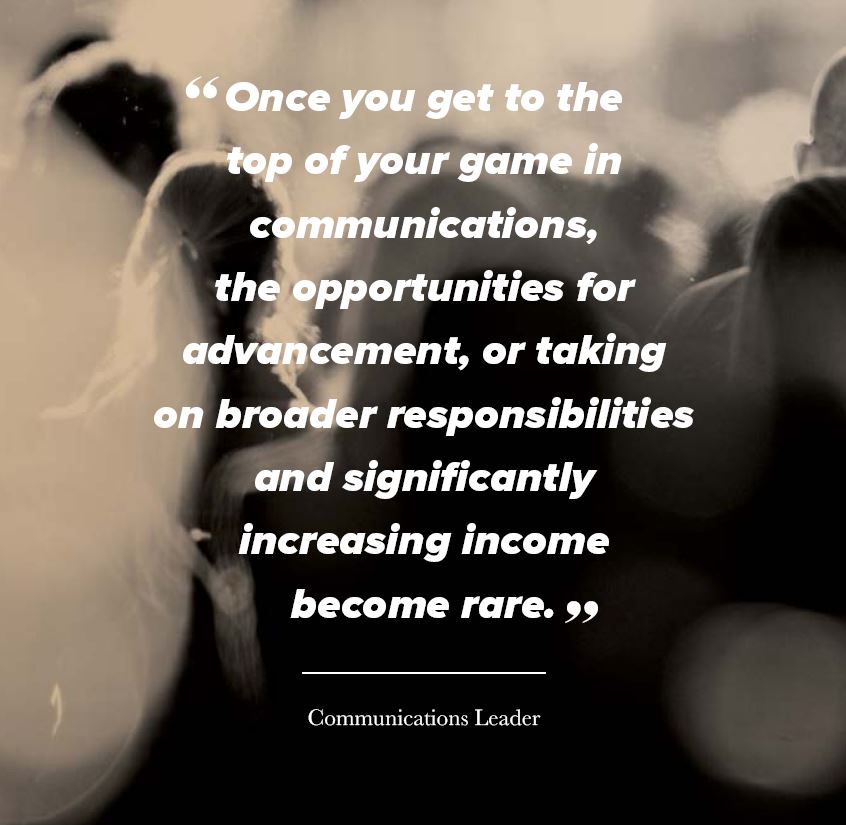Corporate reputation has risen swiftly up the boardroom agenda in recent years, as the demands of customers, shareholders, media, politicians, the investment community and the wider public have grown.
 At the same time, the corporate affairs discipline has established itself as a key support function in most FTSE100 companies. Corporate affairs directors – or their equivalent – oversee large teams and budgets, managing relations with the media, government, employees, investors and often aspects of marketing, social media and corporate strategy.
At the same time, the corporate affairs discipline has established itself as a key support function in most FTSE100 companies. Corporate affairs directors – or their equivalent – oversee large teams and budgets, managing relations with the media, government, employees, investors and often aspects of marketing, social media and corporate strategy.
In the FTSE100, almost half of these senior communicators have a seat on the executive committee (ExCo) giving them an opportunity to contribute to the overall leadership and direction of the company and broaden their experience.
Their progress masks some frustration with how their careers might progress. More than half of the communications leaders surveyed felt they lacked sufficient opportunities for promotion or career development – especially compared to their peers in operations and marketing.
More than three-quarters could not see a career outside communications in the medium term. Many pictured themselves in exactly the same role in five years’ time. Some hoped they would have shown progress by moving to a larger company with a bigger global footprint albeit still as a communicator. As a next step, they would consider allied roles that remain communications-focused, including marketing or consultancy.
There are too few examples of communications leaders who have successfully moved outside the discipline. Almost nine in ten of those surveyed thought they would have to move company to achieve this.
Non-executive roles are by far the preferred path for communications leaders to step outside communications. CEO roles, such as leading a trade association, or business development, are viewed as alternative routes. These candidates believe the breadth of their skills – management of corporate reputation, identification of corporate risk – make them suitable NED candidates.
They are most likely to turn to headhunters for careers advice and support, ahead of their own business network or a mentor.
Both chairmen and – surprisingly – corporate affairs directors ranked communications as the function with the least relevant skills for NED work. Finance, operations and strategy came top.
Enthusiasm for broadening careers outside communications has not been matched by success. Some 85% of those communicators surveyed were very interested in NED work, but only a fifth had ever held a NED role. These appointments were typically pro bono, unpaid, in the arts or charity worlds. Communicators face a range of barriers to career progression. The corporate affairs discipline is relatively new, has a perception problem and is poorly understood. This is not helped by the role and responsibility varying from company to company – as well as the quality of the person in the role. Too few communicators make it onto the ExCo and options for professional development are limited.
More general barriers include the lack of understanding of how to find a NED role and the limited number of NED seats around any board table.
Chairmen are mainly sceptical about corporate affairs directors taking on NED work, although they believe those that have worked for big brands in highly-regulated industries stand the best chance. They question what another communicator would bring to the table on top of in-house and crisis agency expertise. They view as a risk appointing someone with a lack of commercial expertise. They recommended that picking up broader managerial experience in-house is the best first step to broadening a communications career.
That advice tallies with the fact that half of the executives that have moved onto noncommunications leadership roles made the first move with their existing employer. A third eventually moved on to run a trade body, where communications and advocacy are key skills. Half of these breakaways have a political background.
Communications leaders who want to make broad career progress must contribute beyond the corporate affairs brief, network carefully and gain new skills such as strong financial literacy. A mentor, such as the company CEO, will open doors to taking on wider responsibilities and also support candidacy for NED roles.
Headhunters and NED training groups can help to develop a USP and assist with talent spotting. Becoming a NED at a small organisation can provide useful experience, but is not a guaranteed pathway to a FTSE100 board seat or a plural future.
However, the continued drive for boardroom diversity, the evolution of the senior communications role, plus a sharp focus on gaining new skills, can only increase opportunities in the future.


